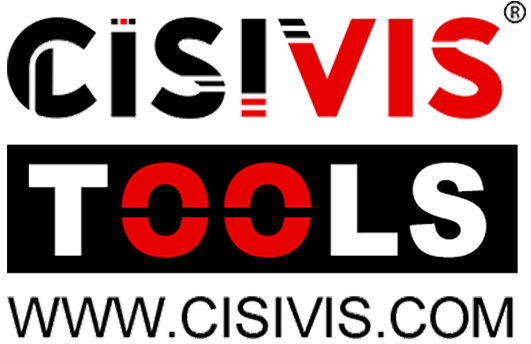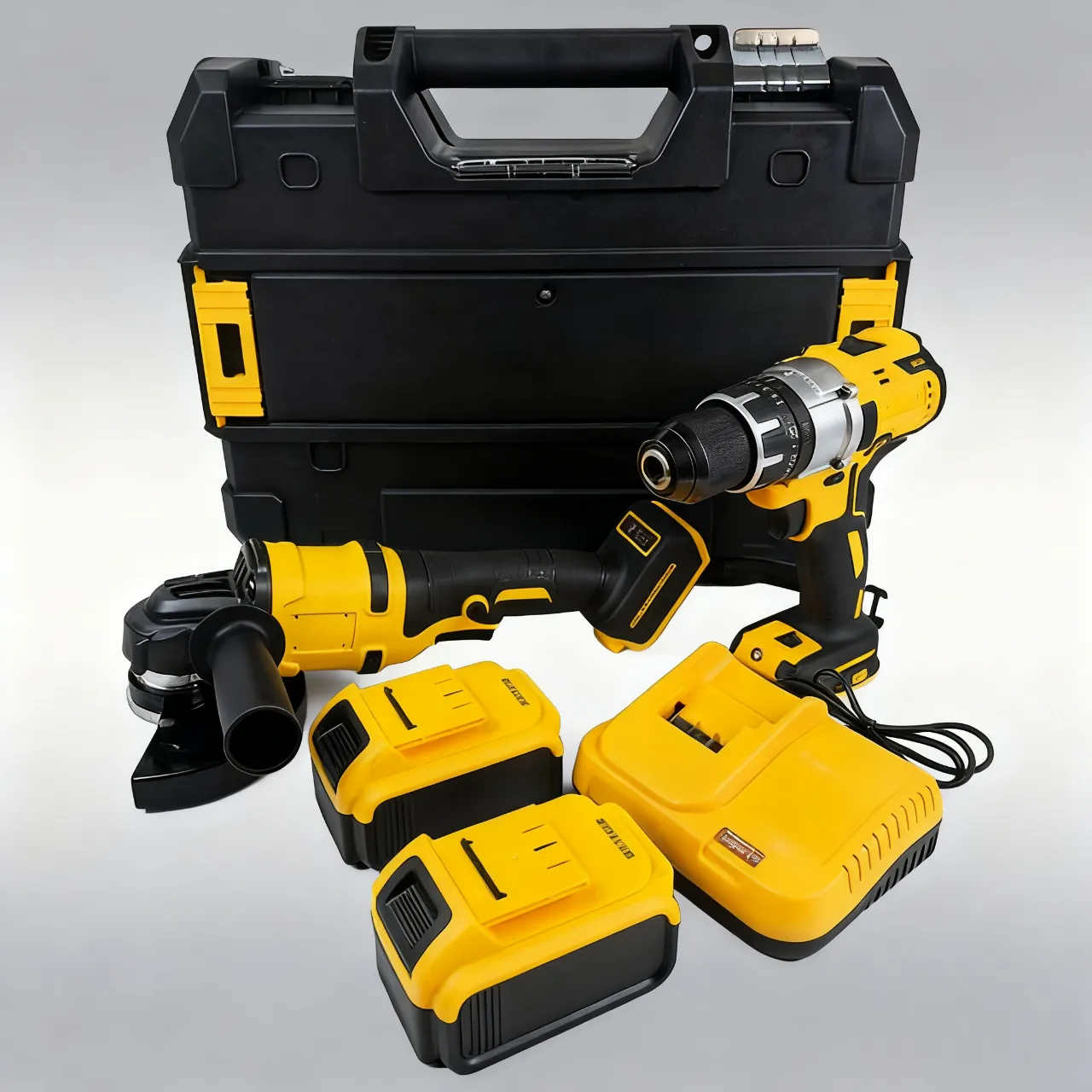Power Tools Set Wholesale: Trends, Buyer Considerations & Why cisivis Leads the Way Leave a comment
Market Trends of the Power Tools Set Industry
In recent years, the global market for power tools has been growing steadily, especially for cordless and kit-style (set) tools. According to MarketsandMarkets, the global power tools market was valued at about USD 39.5 billion in 2024, and is projected to reach USD 45.5 billion by 2029, growing at a CAGR of roughly 2.9 % over that period. Meanwhile, Grand View Research estimates a more aggressive growth: they project the market will grow from about USD 32.95 billion in 2024 to USD 54.50 billion by 2030, at a CAGR of 9.4 %.
These reports show several driving forces behind this growth:
- Switch to cordless / battery-powered tools: As battery technology (especially lithium-ion) improves, more users prefer the convenience of cordless kits over traditionally corded tools.
- Rise of “kit / set” buyer behavior: Instead of buying individual tools, many buyers now prefer to get a set (drill + impact driver + saw, etc.) because it ensures compatibility, packaging efficiency, and better value.
- Demand in construction, DIY, and industrial sectors: Infrastructure investment, renovation, and growth in emerging markets all push demand for reliable power tool kits.
- Technological enhancements: Brushless motors, smart electronics, better battery management systems contribute to performance, making set tools more attractive.
Thus, “power tools set” as a product type is well situated in a growing market. For B2B (wholesale) sellers and manufacturers, this is a good moment to emphasize sets, kit compatibility, and battery platform strategies.
What B-Side Clients (B2B Buyers) Must Consider When Procuring a Power Tools Set
When a wholesale buyer, distributor, or contractor considers buying power tools sets in bulk, they usually have several concerns. Addressing these concerns clearly can make the difference between winning a contract or losing a potential customer. Here are the major considerations:
2.1 Product Quality and Consistency
- Batch-to-batch consistency: Buyers worry that one batch may have defects, motors weaker, or tolerances drifting.
- Durability under load and over time: Tools should perform well under real work conditions (drilling, cutting, continuous use).
- Quality control and testing: Buyers will ask whether the supplier does 100% functional tests, drop tests, load tests, etc.
- Parts interchangeability: When components wear out (gears, switches), replacements should match exactly.
2.2 Battery Performance & Platform Compatibility
- True capacity & runtime: Battery specs must not be exaggerated. Real-world runtime is critical.
- Fast charging & minimal self-discharge: For job site usage, less downtime is better.
- Interchangeability across uses: If the same battery works for multiple tools (drill, impact, saw), that’s a big plus.
- Cycle life & warranty: How many charge/discharge cycles before capacity falls? Buyers want evidence or guarantee.
2.3 Certifications & Compliance
- Safety and regulatory certifications: Many countries require CE, RoHS, UL, ETL, etc.
- Material and electrical safety: Insulation, protection against overloads, thermal management.
- Documentation: Test reports, certificates, compliance declarations, MSDS for parts.
2.4 OEM / ODM Flexibility & Branding
- Logo & branding options: Buyers often need their own logo, packaging, color scheme.
- MOQ (Minimum Order Quantity): Buyers may not want to commit to very large orders initially.
- Design support: They may expect the supplier to help with artwork, design, packing.
- Changes and upgrades: Ability to upgrade tool specs, battery capacity, or accessories in future orders.
2.5 Price & Cost Structure
- Transparent cost structure: Buyers often expect a breakdown or at least clear pricing tiers.
- Volume discounts: The more they order, the lower the unit cost should be.
- Shipping, duties, and hidden costs: Freight, customs, packaging should not surprise the buyer.
2.6 Delivery Reliability & Lead Time
- On-time delivery: Delays cost projects, ruin schedules.
- Supply chain stability: Buyers worry about parts shortage (chips, battery cells) disrupting supply.
- Buffer stock & backup plans: Suppliers should have strategies to mitigate interruptions.
2.7 After-Sales Support & Warranty
- Warranty terms: 6 months, 12 months, or more? What is covered?
- Replacement parts & repairability: Easy access to spares and instructions.
- Technical support: Documentation, videos, manuals, responsive support.
- Returns and defect handling: Clear policies and fast resolution for defective units.
2.8 Packaging & Presentation
- Retail-friendly packaging: Attractive, protective, with branding, barcodes, user manuals in local languages.
- Tool cases, inserts, storage: Good cases (hard plastic, EVA) give value to the set.
- Documentation clarity: Instructions, safety warnings in required languages.
When a supplier can clearly address all these areas, a B2B buyer has higher confidence to place large orders.
Why cisivis’ Power Tools Set Is a Smart Choice for Wholesale Buyers
3.1 Low Price & Better Cost Performance
We maintain a lean production line and optimize our sourcing, allowing us to offer more competitive pricing without compromising quality. For bulk orders, we provide significant volume discounts—the more you order, the lower your unit cost.
3.2 OEM & ODM Support
Cisivis fully supports OEM and ODM customization. You can put your logo, brand name, or color scheme on tools, packaging, and user manuals. We accept flexible MOQs so you can test new markets without overcommitting.
3.3 In-house Battery R&D
One key differentiator: we develop our own battery cells and battery management systems (BMS). Because of this:
- Our battery cost is lower (no middleman markup).
- We can closely control quality, cycle life, safety, performance.
- We can adapt battery design for different markets (voltage, capacity, connector types).
3.4 Stable Delivery & Supply
We have established a reliable supply chain with safety stock and backup suppliers. We guarantee timely delivery and consistent supply even during peak seasons or disruptions. This eliminates one of the major risks buyers fear.
3.5 Compliance with International Certifications
Our power tools sets are designed to meet multiple national and international certifications (CE, RoHS, UL/ETL as needed). We can provide the required test reports, compliance documents, and ensure tools are acceptable for sale in your target markets.
In short, Cisivis offers wholesale buyers a cost-effective, customizable, technically strong, and reliable power tools set solution—addressing nearly all major buyer concerns.
Conclusion
In summary, the power tools set market is growing, fueled by improvements in battery tech and demand for convenience and modular tool kits. B2B buyers must carefully evaluate product consistency, battery platform, certifications, OEM flexibility, pricing, delivery, after-sales support, and packaging when selecting a supplier.
Cisivis stands out by offering affordable pricing, support for OEM/ODM, in-house battery development, scalable discounts, stable supply, and products that conform to global certifications.
If you’re looking for a reliable partner in wholesale power tool sets, contact Cisivis today to get a sample, request custom branding, or get your personalized quotation!



